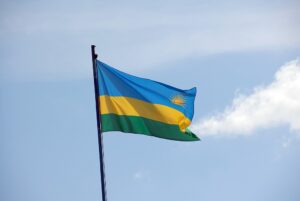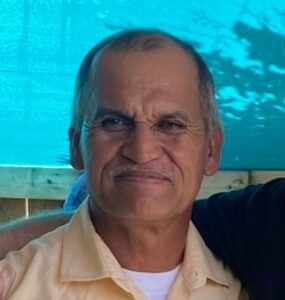The following is based on a communication written by the UN Special Rapporteur on Human Rights Defenders and other UN experts to the Government of Italy on 7 February 2023. The communication remained confidential for 60 days before being made public, giving the Government time to reply. The Government replied on 28 April 2023.
Since the communication was sent, the trial against the Iuventa crew members and other human rights defenders in Trapani has continued. The practice of assigning NGO search and rescue vessels distant ports of disembarkation has also remained common, while in March 2023, the first NGO ship was detained on the basis of the new Italian Decree-Law.
This is a shorter version of the original communication.
BACKGROUND
Topic: alleged due process violations and other worrying developments related to the ongoing trial of human rights defenders in Trapani and the regulation of civilian search and rescue in Italy.
Ms. Kathrin Schmidt and Messrs. Dariush Beigui, Sascha Girke and Urich Troeder are human rights defenders and members of the Iuventa search and rescue crew. Between July 2016 and August 2017, the Iuventa was engaged in search and rescue activities in the Central Mediterranean, rescuing over 14,000 persons in distress at sea, with its missions involving approximately 200 volunteers.
ALLEGATIONS
Concerning the trial of the Iuventa crew and others
In early 2021, after an investigation of over four years examining the search and rescue activities of ships of non-governmental organisations (NGOs) in the Central Mediterranean between 2016 and 2017 (see ITA 5/2020), charges were pressed by Trapani prosecutors against Ms. Schmidt and Messers. Beigui, Girke and Troeder, along with 17 other individuals, including other search and rescue crew members, two NGOs and a shipping company, for aiding and abetting unauthorised immigration under article 12.3(a) and (d) and 12.3bis of Legislative Decree 286/1998. The prosecutors alleged aggravating factors in perpetration of the supposed crime, leaving those accused facing up to 20 years in prison if convicted, along with heavy fines. The prosecution’s case centres on alleged instances of collusion between the human rights defenders and supposed smugglers during missions to rescue persons in distress at sea between September 2016 and October 2017. Those accused deny the charges against them, with the supposed criminal activity imputed to the Iuventa crew strongly contested, including on the basis of a detailed forensic reconstruction of the events in question.
On 21 May 2022, preliminary criminal proceedings in the case were opened at the Court of Trapani, with the judge to examine the argument for the advancement of the proceedings to a full trial. Since this date, multiple hearings in the preliminary proceedings have taken place, with delays repeatedly ordered by the court in response to the prosecution’s failure to comply with due process guarantees designed to safeguard the defendants’ right to a fair trial, including their right to be properly informed about the proceedings and served with adequate notice of the charges against them. Delays have also been required due to the failure of the authorities to provide adequate interpretation for foreign defendants in the case during police questioning and court proceedings. While the case file was left untranslated by the prosecution at the outset of proceedings, the presiding judge subsequently ordered the translation of its summary – a document prepared by the police. The complete case file, including attachments laying out the evidence proposed by the prosecution, remain untranslated. Such issues are reportedly common in cases involving foreign defendants, and notably migrants, in Italy.
On 19 December 2022, both the Prime Minister’s Office and the Ministry of Interior applied to the court to join the case as plaintiffs, seeking compensation for alleged moral and financial damage caused by crimes alleged by the prosecutors. This request is currently under consideration by the court. On the same date, the court ordered the provision of additional interpretation for foreign defendants in the trial.
The next date in the proceedings is set for 10 February 2023.
Concerning new practices related to the indication of ports of disembarkation and the impact of Decree-Law 2 January 2023, n. 1 on civilian search and rescue activities
Since late December 2022, a new practice has been observed in relation to the indication of ports of disembarkation for persons in distress rescued by search and rescue ships crewed by non-governmental organisations (NGOs).
In a change from previous procedure, whereby NGO search and rescue ships were regularly instructed to navigate towards ports in southern Italy to disembark persons rescued in distress in the Central Mediterranean, such ships are now being uniformly instructed to navigate to ports in north and central Italy to disembark rescued persons, requiring them to embark on much longer journeys, with persons in distress left on board for much greater periods of time. Such practice was observed, for example, on six dates between 22 December 2022 and 25 January 2023, with NGO search and rescue ships complying with instructions on each occasion, including on at least one instance in which severe weather conditions forced a ship’s captain to request a new port of disembarkation – a request which was denied. A total of 542 persons in distress were involved in these six instances, including women and children. Ports indicated for disembarkation have included those in Ancona, Livorno and La Spezia, all at several days sailing further than ports in southern Italy. On at least one instance, a request to tranship rescued persons from one NGO ship to another, to avoid both being obliged to navigate to a distant assigned port, was rejected by the authorities.
The measures appear to have thus far been applied exclusively in situations in which NGO search and rescue ships request ports of disembarkation, with the Italian Coast Guard and Guardia di Finanza continuing to receive instructions to disembark rescued persons in ports in southern Italy.
In a further development, on 2 January 2023, a new decree-law regulating the activities of civilian search and rescue organisations was adopted following signature by the President. The Decree, which modifies Decree-Law 21 October 2020, n.130, grants power to the Minister of Interior to limit or prohibit the transit or stay of civilian search and rescue ships in Italian territorial waters for reasons of public order and security, and lays out a set of requirements for ships to comply with in order to avoid such exclusion or restrictions. These requirements are as follows:
a) that any ship carrying out systematic search and rescue activities at sea ensure their operations conform with the requirements of the flag State, including any required certifications, and comply with technical requirements related to safety of navigation;
b) that persons rescued by such ships be promptly informed of their right to seek international protection and that, where those rescued express a desire to exercise their right, that the crew members gather data relevant to their claim to be shared with the authorities;
c) that requests for the indication of a port of disembarkation will be requested immediately;
d) that the port indicated by the competent authorities will be reached without delay;
e) that the crew members will cooperate with the police and national search and rescue authorities so as they may reconstruct rescue operations carried out;
f) that search and rescue activities will not be carried out in a way that would create danger or interfere with reaching the indicated port of disembarkation promptly.
Failure to comply with these requirements may be subject to sanction through fines ranging from 10,000 to 50,000 Euro, while any violation may result in the seizure of the ship involved for a period of two months. Repeated violations may result in the confiscation of the ship.
CONCERNS
In the communication, we express our serious concern as to the alleged due process violations in the criminal proceedings against the Iuventa crew and others. In particular, we underline our concerns as to the failure to provide the defendants with crucial documents in the case in a language they understand and to ensure their full and effective participation in the court proceedings through the provision of suitable interpretation. We further express our concern that such failings may be systematic in court proceedings brought against non-Italian speaking defendants in Italy, and represent a much broader trend of impingement of the right to a fair trial.
We reiterate our concern that the opening and pursuit of the case against the human rights defenders amounts to the criminalisation of their legitimate human rights activities, namely, saving lives at sea. In this regard, we express our concern at the repeated use of article 12 of Legislative Decree 286/1998 to target human rights defenders working in the area of the human rights of migrants, and underline our concerns as to the compatibility of the legislation with international standards on people smuggling, and notably with the definition of smuggling provided in article 3(a) of the UN Protocol against the Smuggling of Migrants by Land, Sea and Air.
We express profound regret at the Government’s decision to apply to join the case as a plaintiff, which would appear to signal a conviction on the part of the State to pursue the further conflation of the essential work of human rights defenders as criminal activity, and, in particular people smuggling. We underline that such an approach severely undermines Italy’s stated commitment to uphold human rights and actively support human rights defenders.
We believe the enactment of Decree-Law 2 January 2023, n.1 and the new practice relating to the indication of ports of disembarkation for NGO search and rescue ships not to be disconnected from the prosecution of human rights defenders engaged in search and rescue activities. With the Iuventa ship seized since 2017, and its crew members facing the threat of criminal prosecution since the same year, the search and rescue activities it had been carried out have been forced to a halt. Similarly, the cumulative effect of the new practice of indicating ports of disembarkation in northern and central Italy and the new Decree-Law, in particular its imposition of an obligation on NGO captains to request ports of disembarkation immediately and to sail to them without delay, appears to be the removal of NGO search and rescue ships from the Central Mediterranean – the area in which their presence is required – with subsequent negative impacts on the human rights of migrants in distress at sea, impeding on their right to exercise their legitimate activities for the protection and promotion of human rights. The effective prohibition of multiple rescues on the same voyage would appear to further compound this impact. We express serious concern about the compatibility of the new Decree-Law and practice with international law.



